A blood test for parasites is an obligatory procedure for everyone who works in healthcare, education, animals or plans to visit educational institutions. In contrast to studies of stool, modern blood worms provide a more accurate result, provide an opportunity to assess the degree of infestation and to track the effectiveness of the treatment. Performed surveys of this type quickly and do not require much time to decipher.
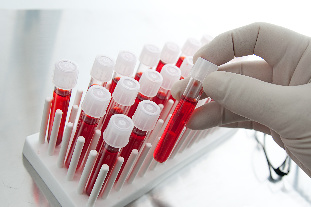
When and to whom you need to pass a blood test for helminthiasis?
Sad medical statistics suggests that approximately for every 3 persons the problem of worms is critical. Household transportation, office and educational institutions, unwashed fruits and vegetables, handshakes — all these familiar to every adult and child cases and are the main source of infestation. Even if the symptoms do not manifest immediately, in any case, the parasites have a very negative impact on the human body: cause poor appetite, contribute to the development of allergies, pain in the damaged organ, poor digestion, sometimes can cause death. Given this, you need to pass on parasites tests for each person (preferably every year).
You can't fuck with the survey when it is already evident characteristic symptoms of helminthiasis:
- sudden weight loss;
- urticaria;
- frequent nausea;
- aversion to food;
- a sharp decline in hemoglobin;
- irritability or insomnia in children.
In addition, you can also call the group of people who are necessary every 6-8 months to check the blood. To such, in particular, include:
- persons who live in areas with frequent outbreaks of helminthiasis;
- those who work in educational institutions and dealing with young children;
- medical professionals;
- all the catering staff;
- individuals who work with animals, as well as their family members (veterinarians, workers at meat processing plants, shepherds, breeders, circus workers and zoo, etc.).
In addition, the blood worms have to pass all children of school and preschool age, which will soon have to attend school clubs. To investigate the blood parasites should pregnant women, children before the vaccination. In addition, repeated tests should be taken after this course of treatment against parasites.
IFA as one of the most effective methods of diagnosis
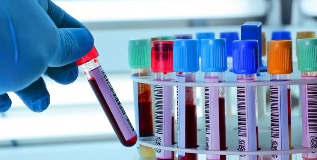
The most popular and reliable analysis specialists today called on the enzyme immunoassay of blood for parasites. The main purpose of this high-precision laboratory method to identify antibodies to a particular type of parasites. The same immunoglobulin (also called antibodies) are a natural reaction of the immune system, and are intended to neutralize the negative agent.
To make an accurate diagnosis, and find out what intensity the disease parasites, how long it lasts, specialists manage using 3 different types of immunoglobulins:
- Class A Found in the blood of a child or adult approximately 2-4 weeks after infection. Almost 80% of them are excreted in mucous membranes and only 20% remains in the blood. After treatment, immunoglobulin And can present not more than a month. If a second test for parasites again detects them, then the disease passed into a chronic form.
- Class M. the Most quickly react to the presence of the parasite. In blood detected on day 5 after infection. However, they do not stay long — up to 2 months, and then gradually displayed. Thus, the doctor can conclude that the presence of acute helminthiasis at the moment.
- Class G. Appear relatively late — after 1 month after helminth infection. However, they are displayed longer than six months. They are used in order to understand how long a person suffers from helminthiasis.
Compared to other laboratory methods, ELISA has several advantages, in particular:
- high precision;
- the ability to determine the stage of the disease;
- versatility;
- the possibility of using for mass screening of the population;
- fits adult and child.
Enzyme-linked immunosorbent assay appropriate for detection of these types of helminthiasis as:
- giardiasis;
- trichinosis;
- leishmaniasis;
- ascariasis;
- cysticercosis;
- opisthorchiasis;
- echinococcosis and others.
Hemo scan to detect parasites
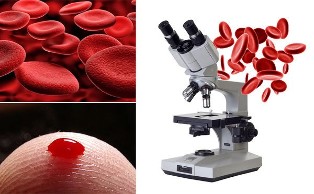
Hemo — scan- one of the most modern tests for parasites in children and adults. With it is possible to detect the following:
- the specific form of the parasite;
- the structure and the number of leukocytes;
- the number of red blood cells;
- the degree of viscosity of the blood;
- the immune system;
- the presence of fungi and viruses.
Unlike ELISA, haemo scanning provides a fence just a few drops of blood from the finger. The liquid is placed on a sterile glass, and then carefully examined under a microscope. The number increases reaches 1800-2000 times. You do not need absolutely no additional treatment (use of enzymes, dyes, drainage, etc.). In modern clinics the image is displayed on a monitor, and therefore the patient has the opportunity to observe the research process, to verify the presence of fungi and helminths. Shocking may be a picture of a larvae of parasites. If necessary, run a photo or video of the study.
This is the Express method, because information about the state of his health the patient can learn in 10-15 minutes.
It should be noted that as an independent method of detection of parasites hemo scan is not actually used. The fact is that the human body can accommodate different types of parasites with different localization. Not in every case, the migration of the larvae in the blood. To suspect the presence of worms allows a reduced number of red blood cells (as some parasites feed on blood and nutrients), increased white blood cell count (shows the struggle of the organism with the parasite), dense plasma.
Other methods of diagnosis
If using method 1 to identify the bot fails, the doctor recommends additional laboratory tests:
- Serologic analysis. Also relates to immunological option as ELISA. However, unlike the latter, the first aims to explore not blood, and serum. In order to obtain information, the physician needs to use the reaction between antibodies and antigen. Serological analysis is not performed for all types of worms, but just the fact that the doctor has a suspicion. If the human body is a parasite, an expert can see a clear reaction.
- PCR diagnostics. Makes it impossible to ascertain the stage of development of helminth infection and are not recommended for establishment of all types of parasites. With its help it is possible to find out only whether there are in the human body simple and helminths. The main task of the technician in this case — the search of DNA and RNA of the parasite. It does not matter, the parasite is alive or dead. To take to research is the possibility of any material, in particular, urine, blood or feces. For greater accuracy, this analysis may give up a few times.
- Vegetative resonance test. The method is based on detecting the resonance between the human body and drug. The latter are information carriers of various types of worms. All the frequency data of each species of parasites was recorded by scientists in 1989 by art (as is also called this method) is performed only in the laboratory, and gives an opportunity to detect the condition of the human immune system in a specific period of time. So, with the help of IVF, the doctor can find out when the body is suffering from allergies, or is it toxic, bacterial, parasitic influence or not.
- A complete blood count. Too high or too low hemoglobin, decreased red blood cell count, an increased number of eosinophils are the main characteristics which allow to suspect the presence of the parasite in the human body.
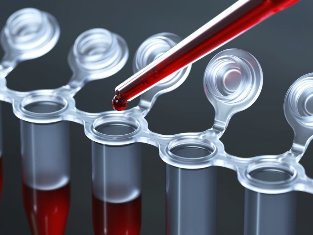
How to prepare for the study, and how to decipher the results?
Features of delivery of the analysis depend on which method you have to use, and which types of parasites are suspected. Usually, the blood is from a vein, and in some cases (hemo scan) with the finger. Only 10-15 ml of blood to establish the diagnosis.
In order to obtain the most accurate information, it is necessary to observe certain rules of delivery of clinical tests:
- On the eve of the day of blood collection the patient should not consume too much salty, fatty food (because it can change the level of white blood cells); the foods that can cause allergies — honey, citrus (increase of eosinophils, which also occurs when helminthiasis); foods rich in essential oils of garlic, onion, ginger (which affects the activity of parasites).
- It is better to pass the material on an empty stomach. Allowed in a small amount of clean water.
- It is imperative to inform your doctor about medications that have been used for the past 2 weeks.
- Not recommended for a few days before the tests to use any physiotherapy treatments (including chest x-rays, ultrasound, radiography).
- At least a week before blood sampling to give up alcoholic drinks and medicines that contain high concentrations of ethyl alcohol.
- Smoking should be abandoned at least 2 hours before testing.
If strong helminthiasis suffered pregnant medical examination and newborn. The blood taken from the umbilical cord or placenta.
To perform the examination usually lasts for 2-3 days. A little more time (up to 5 days) will have to spend in the case when the package is run immunological studies on different types of parasites.
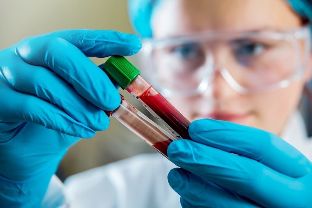
Transcript should only be a specialist. The simplest interpretation remains hemo scanning, and PCR diagnostics. They either detect the parasite or its larvae or not.
Difficult situation with a method that should be called IFA. The doctor is obliged to take into account the immunoglobulins from 3 groups. So, the acute form of the disease can tell if there will be a combination of: immunoglobulin M positive, and class A or G can be positive or negative. About chronic form misleading data: immunoglobulin M do not exist, and class A and G can be positive or negative.
In that case, if any of the above tests showed a positive result, to delay the treatment of helminthiasis is not worth it. After the full prescribed course of treatment requires repeated testing, but this should be done approximately 2-3 months after the medication. Not knowing what tests need to pass, it is better to consult a doctor-internist, gastroenterologist or other specialists.



































